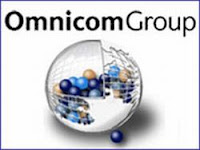The history of the industry has never seen such a colossal amalgamation, with some British brands voicing concern within the lobbying group, ISBA (Shell, P&G and Tesco,) who fear a "mega-agency merger" and associated advertising competition threats (ISBA's Bob Wootton.) The move was defended by Publicis CEO Maurice Levy who explained the dramatic change within the industry regarding ongoing digital developments as the reason, claiming that the merger would deliver greater digital and analogue services to the entity's clients, amongst which will be: McDonald's, P&G, Apple and Pepsi. The case has been brought forward to the Office of Fair Trade (OFT) who shall decide on the issues surrounding anti-trust and competition concerns. The company will be based in neither France nor the US, but instead will be situated within the Netherlands. This was clarified as not being for tax advantages, but rather for neutrality.
The recent developments in the international media market has seen exponential increase in online activities, with marketing budgets being devoted, on average, to increasing digital spend by 21-30% for this year alone, according to an eConsultancy report. The same report also stipulates the opinions of a statistically significant number of marketers and agencies who are also mostly (70%+) in favour of increasing time and money devoted to new-/digital media. This has lead to new media giants, according to Levy, such as Facebook, whom he wishes to counter with the larger company and its increased operations/finance, in order to deliver more for associated clients.
This development of course is still underway, with more opinions surfacing such as that of ITV CEO Adam Crozier, stating that his company will be able to 'hold its own' against the giant that will come to own and purvey 30% of all UK television adverts. This is indicative of general support and adoration so far across the industry. Will the new venture succeed or fail in the long run, or will the OFT retract initial decisions? Only time will tell at this point, though personally, I am hopeful for its success and the continued growth for the marketing industry overall, in times of bleak economic outlook and high unemployment.
LINKS:
- http://www.telegraph.co.uk/finance/newsbysector/mediatechnologyandtelecoms/10208339/Publicis-Omnicom-what-the-new-company-will-look-like.html
- http://uk.finance.yahoo.com/news/british-brands-issue-competition-warning-182738202.html
- http://econsultancy.com/uk/reports/marketing-budgets (Marketing Budgets 2013 Report [PDF])
- http://www.theguardian.com/business/2013/jul/28/omnicom-publicis-merger-france-united-states
- http://www.theguardian.com/media/2013/jul/30/publicis-omnicom-itv
- http://www.telegraph.co.uk/finance/newsbysector/mediatechnologyandtelecoms/media/10209746/British-brands-issue-competition-warning-over-Omnicom-Publicis-merger.html

WPP: Overtaken Media Giant




